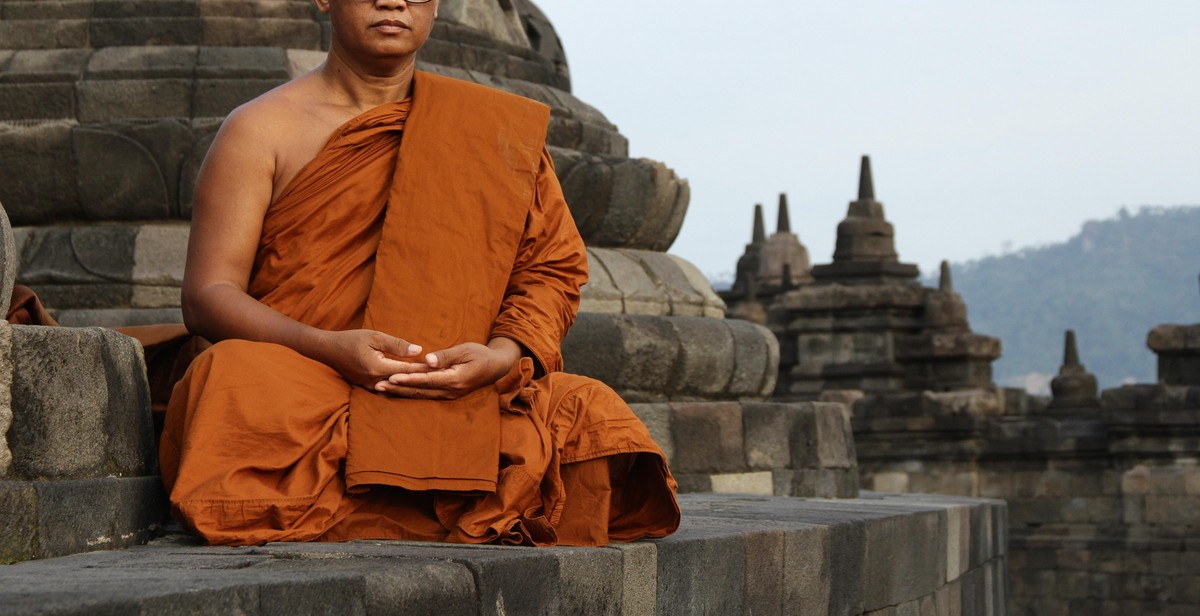The Role of Meditation in Managing Anxiety Disorders
Anxiety is a common mental health condition that affects millions of people worldwide. It is characterized by excessive worry, fear, and apprehension about future events or situations. Anxiety can have a significant impact on a person’s quality of life, making it difficult to carry out daily activities and maintain relationships.
Meditation, on the other hand, is a practice that involves training the mind to focus and achieve a state of calmness and relaxation. It has been used for centuries as a tool for spiritual growth and personal development, but in recent years, it has gained recognition as an effective way to manage anxiety and other mental health conditions.
What is Anxiety?
Anxiety is a natural response to stress, but when it becomes excessive and persistent, it can be debilitating. There are several types of anxiety disorders, including generalized anxiety disorder, panic disorder, social anxiety disorder, and specific phobias. Symptoms of anxiety can include:
- Excessive worry or fear
- Restlessness or irritability
- Fatigue or difficulty sleeping
- Muscle tension or trembling
- Difficulty concentrating
What is Meditation?
Meditation is a practice that involves training the mind to focus and achieve a state of calmness and relaxation. There are several types of meditation, including mindfulness meditation, transcendental meditation, and loving-kindness meditation. The goal of meditation is to quiet the mind and achieve a state of inner peace and tranquility. It has been shown to have several benefits for mental health, including reducing stress and anxiety, improving mood, and enhancing overall well-being.

The link between meditation and anxiety
Anxiety disorders are one of the most common mental health issues worldwide. According to the World Health Organization, nearly 264 million people globally suffer from anxiety disorders. While medication and therapy are the conventional methods of treating anxiety, meditation has emerged as an effective alternative therapy for managing anxiety disorders.
How does meditation help with anxiety?
Research has shown that meditation can help reduce anxiety symptoms by calming the mind and promoting relaxation. When you meditate, you focus your attention on your breath or a particular object, which helps to quiet the mind and reduce racing thoughts that often contribute to anxiety. As you continue to meditate regularly, you become more aware of your thoughts and feelings, which can help you identify triggers that cause anxiety and learn to manage them more effectively.
Meditation also helps to reduce the physiological symptoms of anxiety, such as increased heart rate and blood pressure. By practicing meditation regularly, you can train your body to respond more calmly to stressful situations, which can help to reduce the severity of anxiety symptoms.
Research on meditation and anxiety
Several studies have been conducted on the effectiveness of meditation in managing anxiety disorders. A 2014 meta-analysis of 47 studies found that meditation can significantly reduce symptoms of anxiety, with the most significant reductions seen in people with higher levels of anxiety before starting meditation.
Another study published in the Journal of Clinical Psychology in 2010 found that mindfulness-based stress reduction (MBSR), a type of meditation, was effective in reducing anxiety symptoms in people with generalized anxiety disorder. The study showed that after eight weeks of MBSR, participants reported significant reductions in anxiety symptoms and an improvement in overall quality of life.
A 2018 study published in the Journal of Psychiatric Practice found that mindfulness meditation can be an effective adjunctive treatment for people with anxiety disorders who are already receiving conventional treatment. The study showed that participants who practiced mindfulness meditation in addition to their regular treatment reported significant reductions in anxiety symptoms compared to those who only received conventional treatment.
Overall, the research suggests that meditation can be an effective alternative therapy for managing anxiety disorders. While more research is needed to fully understand the link between meditation and anxiety, the available evidence suggests that regular meditation practice can help to reduce anxiety symptoms and improve overall quality of life for people with anxiety disorders.

Types of Meditation for Managing Anxiety
Meditation is a powerful tool that can help manage anxiety disorders. In fact, there are several types of meditation that can be practiced to reduce anxiety. Here are some of the most effective:
Mindfulness Meditation
Mindfulness meditation is a type of meditation that focuses on being present in the moment. It involves paying attention to your thoughts and feelings without judgment. This type of meditation can be helpful for managing anxiety because it allows you to observe your thoughts and feelings without becoming overwhelmed by them.
During mindfulness meditation, you sit quietly and focus on your breath. When your mind wanders, you simply bring it back to your breath. This helps to train your mind to stay in the present moment and not become consumed by anxious thoughts.
Transcendental Meditation
Transcendental meditation is a type of meditation that involves repeating a mantra silently to yourself. This type of meditation is designed to help you achieve a deep state of relaxation and reduce stress and anxiety.
During transcendental meditation, you sit quietly with your eyes closed and repeat a mantra to yourself. This helps to quiet your mind and reduce anxious thoughts. Transcendental meditation has been found to be particularly effective for people with generalized anxiety disorder.
Yoga and Meditation
Yoga is a type of exercise that combines physical movement with meditation and breathing techniques. This can be particularly helpful for managing anxiety because it helps to reduce physical tension and stress in the body.
During yoga, you move through a series of poses while focusing on your breath. This helps to calm the mind and reduce anxious thoughts. Yoga has been found to be particularly effective for people with social anxiety disorder.
Overall, there are several types of meditation that can be helpful for managing anxiety disorders. Whether you choose mindfulness meditation, transcendental meditation, or yoga and meditation, regular practice can help to reduce anxiety and improve overall well-being.

Tips for incorporating meditation into your anxiety management routine
Meditation is a powerful tool that can help you manage anxiety. Here are some tips to help you incorporate meditation into your anxiety management routine:
Start small
When you’re new to meditation, it’s important to start small. Begin with just a few minutes of meditation each day and gradually increase the time as you become more comfortable with the practice. Starting small will make it easier to stick with your meditation routine and will help you avoid feeling overwhelmed.
Be consistent
Consistency is key when it comes to meditation. Try to meditate at the same time each day to help establish a routine. Whether you choose to meditate in the morning, afternoon, or evening, make sure you stick to your schedule as much as possible.
Find a comfortable position
It’s important to find a comfortable position for meditation. This can be sitting cross-legged on the floor, sitting in a chair with your feet flat on the ground, or lying down. Experiment with different positions to find what works best for you.
Use guided meditations
If you’re new to meditation, using guided meditations can be helpful. Guided meditations provide instructions and can help you stay focused. There are many free guided meditations available online, or you can download a meditation app that offers guided meditations.
By following these tips, you can start incorporating meditation into your anxiety management routine and begin reaping the benefits of this powerful practice.

Other anxiety management techniques to use in conjunction with meditation
While meditation is a powerful tool for managing anxiety, it’s not the only method available. Here are some other anxiety management techniques you can use in conjunction with meditation:
Exercise
Physical activity is a great way to reduce anxiety and stress. Exercise releases endorphins, which are natural mood-boosters. It also helps to reduce muscle tension and promote relaxation. Any type of exercise can be helpful, whether it’s a brisk walk, yoga, or weightlifting. Find an activity you enjoy and make it a regular part of your routine.
Breathing exercises
Deep breathing exercises can help to calm your mind and reduce anxiety. Try taking slow, deep breaths in through your nose and out through your mouth. You can also try counting to four as you inhale, holding your breath for a few seconds, and then exhaling slowly. Repeat this for a few minutes until you feel more relaxed.
Journaling
Writing down your thoughts and feelings can help to release pent-up emotions and reduce anxiety. Try journaling for a few minutes each day, focusing on your emotions and any triggers that may be causing anxiety. This can help you to identify patterns and develop coping strategies.
Therapy
Therapy can be a helpful tool for managing anxiety. A therapist can help you to identify underlying issues and develop coping strategies. Cognitive Behavioral Therapy (CBT) is a particularly effective form of therapy for anxiety.
By incorporating these techniques into your daily routine, you can enhance the benefits of meditation and better manage your anxiety.
